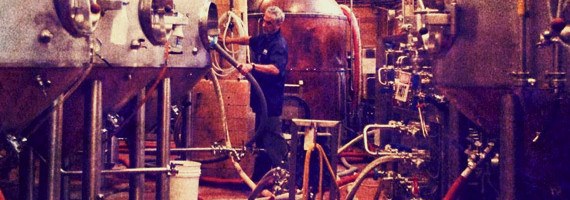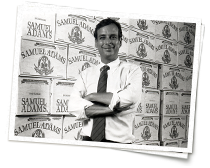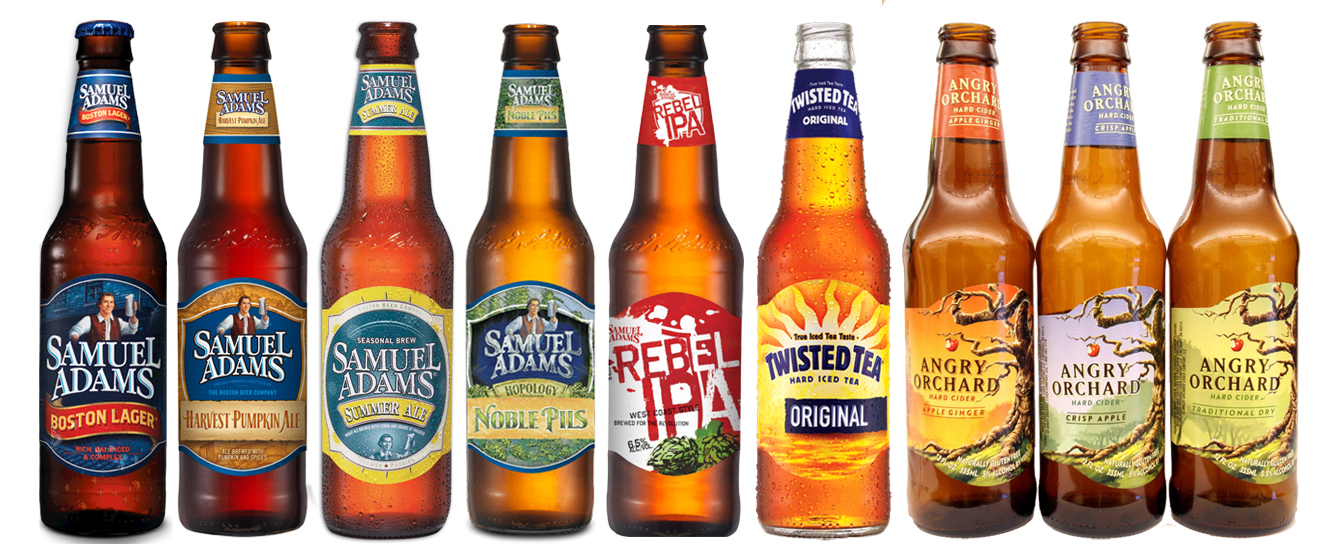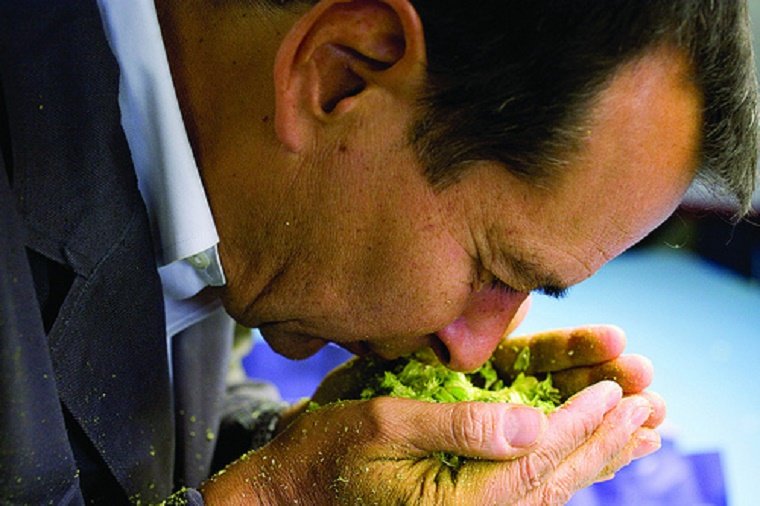Boston Beer Co. – The Founding Father of the Craft Beer Revolution

@BostonBeer continues to lead the craft beer revolution by innovating like the small guys and distributing like the big ones

Boston Beer Co. (BBC) was founded in 1984 when Jim Koch discovered his great-great grandfather’s recipe for a lager in the attic of his father’s home. He went on to brew the first batch of that beer in his kitchen, and alas the craft beer revolution was born! Samuel Adams Boston Lager was introduced in 1985, and that same year the beer was selected as the “Best Beer in America” in the “Great American Beer Festival’s Consumer Preference Poll”.
Since then, both BBC and the craft beer industry have grown enormously. In 2014, a total of 22.2 million barrels of craft beer were sold in the US, representing an 18% increase over 2013. BBC sold 4.1 million barrels in 2014, an increase of 20%, making it the largest craft brewer in the United States.
A Winning Strategy

BBC’s goal is to be the US leader in the “Better Beer” category, which includes craft beers, specialty beers and most imports, which together make up only 10% of the total beer market. BBC sells over 60 different beers under the Sam Adams name, 11 malt beverages under the Twisted Tea name, and 10 hard ciders under the Angry Orchard brand name.
The firm’s business model is to develop new recipes in its Boston brewery, source ingredients (barley, hops, apples, etc) globally, brew the beers mostly its Cincinnati and Pennsylvania breweries, and sell to a network of 350 distributors.
BBC’s four main competitive advantages are: product innovation, high quality ingredients and brewing, beer freshness and strong branding and marketing.
How it Delivers – Alignment of the Business Model and the Operating Model
Innovation
BBC is known as one of the most innovative craft beer companies in the United States. Most product development occurs in the company’s Boston brewery, where new types of beer and ciders are created. Angry Orchard is a great example of the success of the company’s innovation practices: it was introduced in 2012, and it now accounts for 50% of all hard cider sales in the United States.
Furthermore, the company relies on outside influences to spur innovation. As an example, the company promotes the Long Shot Homebrew Contest in which homebrewers submit homebrews for inclusion in the Long Shot Six Pack. In addition, BBC formed a subsidiary named Alchemy & Science, led by the two co-founders of Magic Hat, to develop new craft beers and/or acquire craft breweries in the market.
High Quality Ingredients and Brewing

To ensure high quality, BBC sources its ingredients from several global suppliers. The firm has a multi-year contract with a single supplier for all its barley (grown in US and Canada), which assures consistency and availability.
BBC uses Noble hops from Germany for the majority of its beers, though it also sources from US, England and New Zealand. BBC enters into purchase agreements with seven global hop dealers based on projected future volumes.
In addition, the firm uses multiple strains of yeast for beer production, some which are commercially available and others that are proprietary.
The company brews its beers mainly in its Pennsylvania and Cincinnati breweries. The Pennsylvania Brewery is the company’s largest by volume, where the majority of the most popular varieties are brewed. The Cincinnati brewery mostly focuses on specialty and lower volume beers.
In order to maintain high quality standards, the company’s 15 brew masters perform extensive evaluations and tastings to make sure each batch conforms to company standards.
Freshest Beer Program
The company goes to great lengths to ensure that all its beer reaches the end customer as fresh as possible. In 2010, the firm introduced its Freshest Beer Program with its domestic distributors. The goal of the program is to provide better on-time service, forecasting, production planning and cooperation with the distributors, while substantially reducing inventory levels at the distributor. Historically, distributors would hold 3-5 weeks of inventory. BBC’s goal is to reduce inventory to about 1-2 weeks at most. The program has proved difficult and costly to implement, and BBC has taken a hit to its profits in order establish it, however it is starting to show results and ~70% of volume goes through the program.
Sales & Marketing
Finally, the company maintains a robust salesforce of 410 people, which is amongst the largest in the beer industry. The salesforce is designed to develop relationships with each level of the three-tier distribution system by providing educational and promotional programs to distributors, retailers and drinkers. In addition, the company develops media campaigns (television, radio, digital, etc), and sponsors several events and beer festivals.
Sources
2014 Boston Beer Company Annual Report (accessed through corporate website at www.bostonbeer.com)
BBC History, from corporate website (http://www.bostonbeer.com/phoenix.zhtml?c=69432&p=irol-homeprofile)
“2014 National Beer Sales & Production Data”, Brewers Association, May 2015 (https://www.brewersassociation.org/statistics/national-beer-sales-production-data/)
“Jim Koch: a tireless campaigner for freshness”, Craft Beer Restaurant.com (http://craftbeerrestaurant.com/Craft_Beer_Restaurant/Koch_on_Freshness.html)
“Boston Beer’s (SAM) CEO Martin Roper on Q3 2015 Results – Earnings Call Transcript”, Seeking Alpha, Oct 31, 2015 (http://seekingalpha.com/article/3628926-boston-beers-sam-ceo-martin-roper-on-q3-2015-results-earnings-call-transcript)
“Boston Beer Reports Third Quarter 2015 Results” October 29, 2015 from Boston Beer corporate website (http://www.bostonbeer.com/phoenix.zhtml?c=69432&p=irol-newsArticle&ID=2104435)
“Boston Beer’s (SAM) CEO Martin Roper on Q4 2014 Results – Earnings Call Transcript”, Seeking Alpha, February 24, 2015 (http://seekingalpha.com/article/2947016-the-boston-beer-companys-sam-ceo-martin-roper-on-q4-2014-results-earnings-call-transcript)
“Boston Beer Reports Fourth Quarter 2014 Results” February 24, 2015 from Boston Beer corporate website (http://www.bostonbeer.com/phoenix.zhtml?c=69432&p=irol-newsArticle&ID=2019681)



Really interesting post, Ivan! I think it’s smart of BBC to separate its production into two distinct breweries, one for smaller/specialty/innovative batches and the other for high volume/popular batches. I’m sure this information is not easy to find publicly, but it would be interesting to know if the different breweries have different operating models in terms of cells, assembly lines, continuous flow, etc, given the differences in the number of types and relative volumes of beer that each brewery produces.
The freshest beer program is interesting as well. When I visited the Sam Adams brewery, it sounded like at least part of this program is buying back older beer inventory from distributors (which may be causing some of the losses BBC is experiencing). But your post makes it sound more like they are trying to increase the frequency of delivery and improve communication with distributors, possibly reducing the bullwhip effect and allowing for better planning as we saw in our beer game. A cool, literal parallel to something we learned in class!